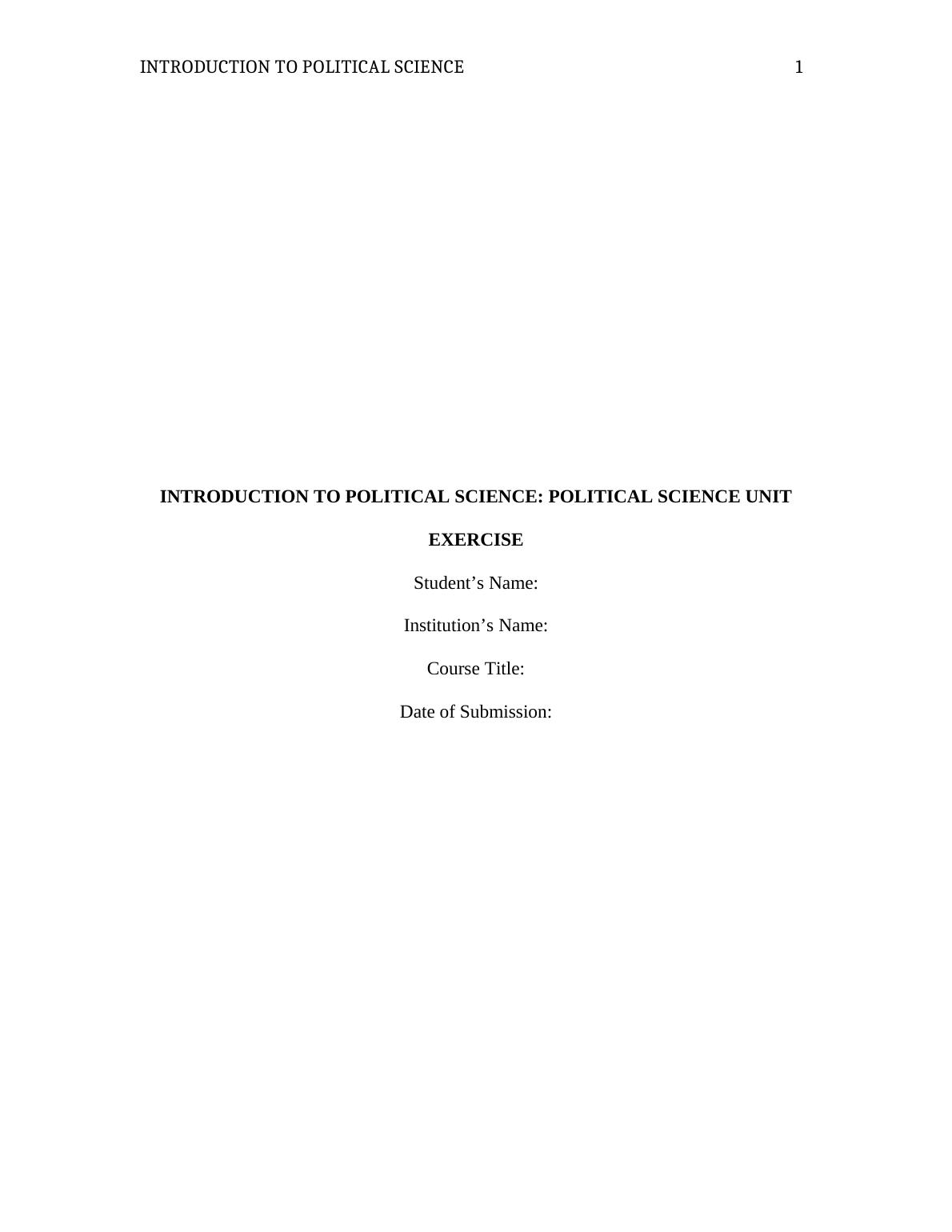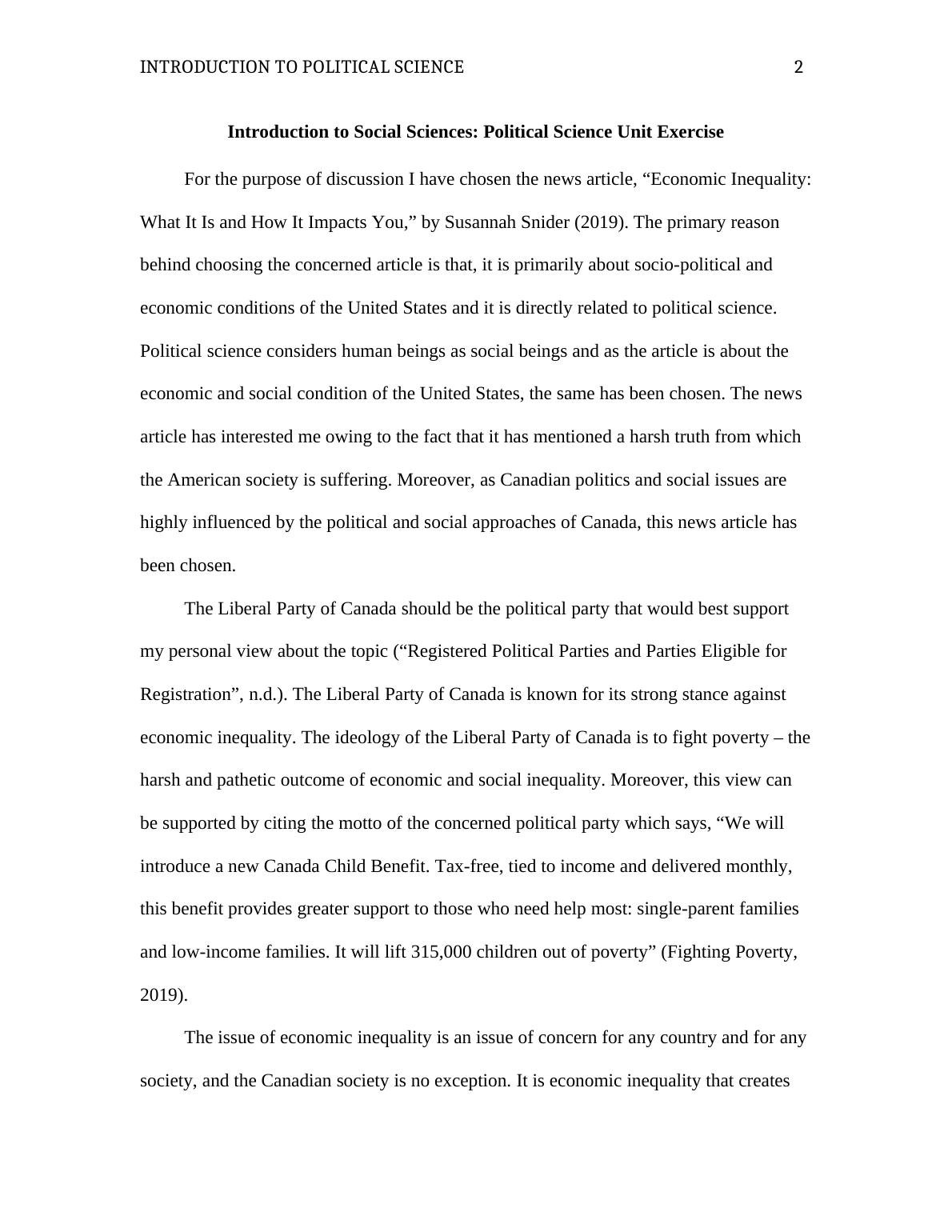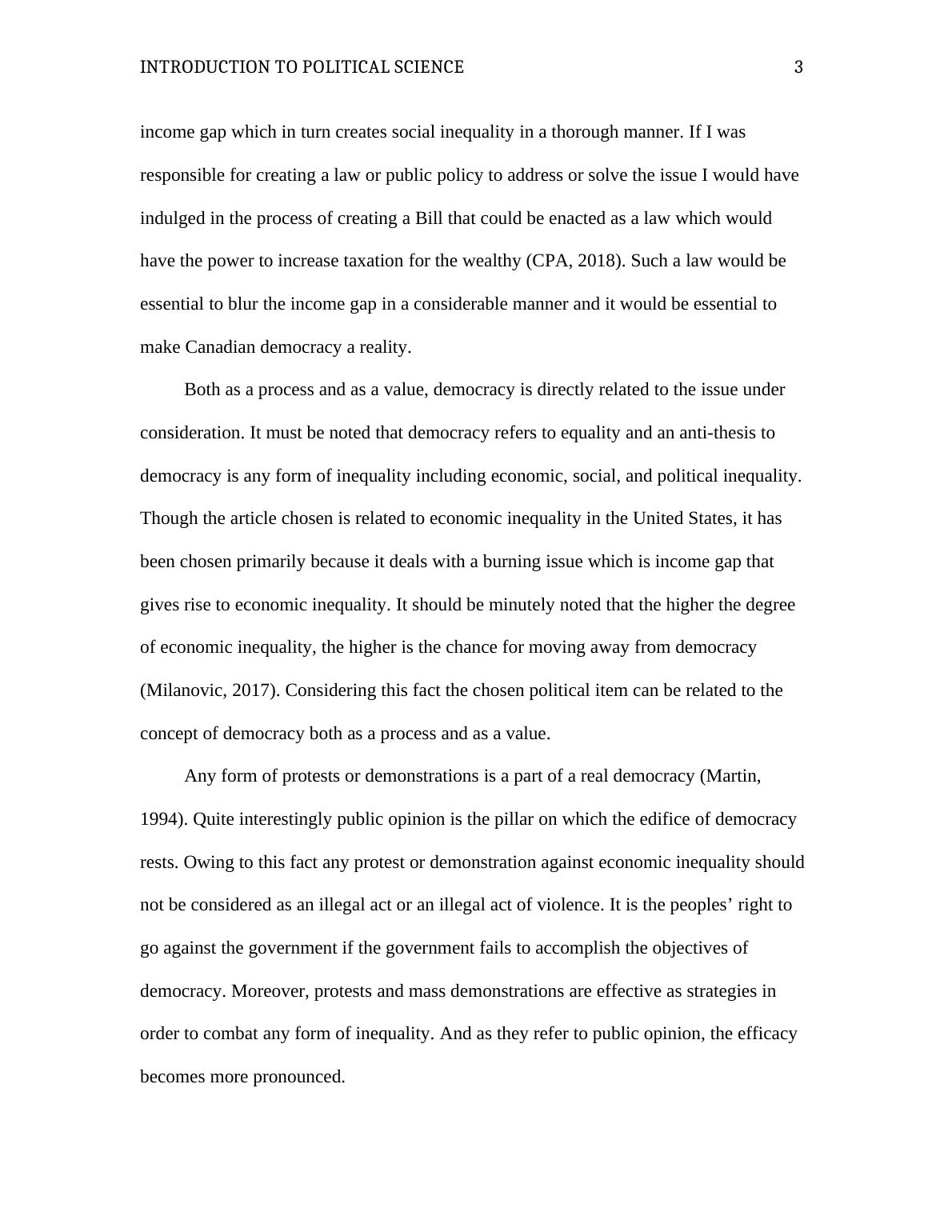Introduction to Political Science
Answer questions based on a selected political science item and discuss its appeal and relevance.
6 Pages1112 Words67 Views
Added on 2023-01-18
About This Document
This document provides an introduction to the field of political science, focusing on the topic of economic inequality. It discusses the impact of economic inequality on society and explores the role of media in shaping political issues. The document also highlights the importance of democracy and public opinion in addressing economic inequality.
Introduction to Political Science
Answer questions based on a selected political science item and discuss its appeal and relevance.
Added on 2023-01-18
ShareRelated Documents
End of preview
Want to access all the pages? Upload your documents or become a member.
Economic Inequality: What It Is and How It Impacts You
|3
|605
|25
Electoral Issues in Canada: Challenges and Solutions
|6
|1594
|75
Gender Inequality in Canada: A Political Science Perspective
|3
|618
|382
Gender Inequality in Canada: A Political Science Perspective
|3
|618
|90
Effect of Cyber Threats on Democracy
|6
|1107
|21
Effect of Foreign Intrusions on Democracy
|6
|1157
|37



